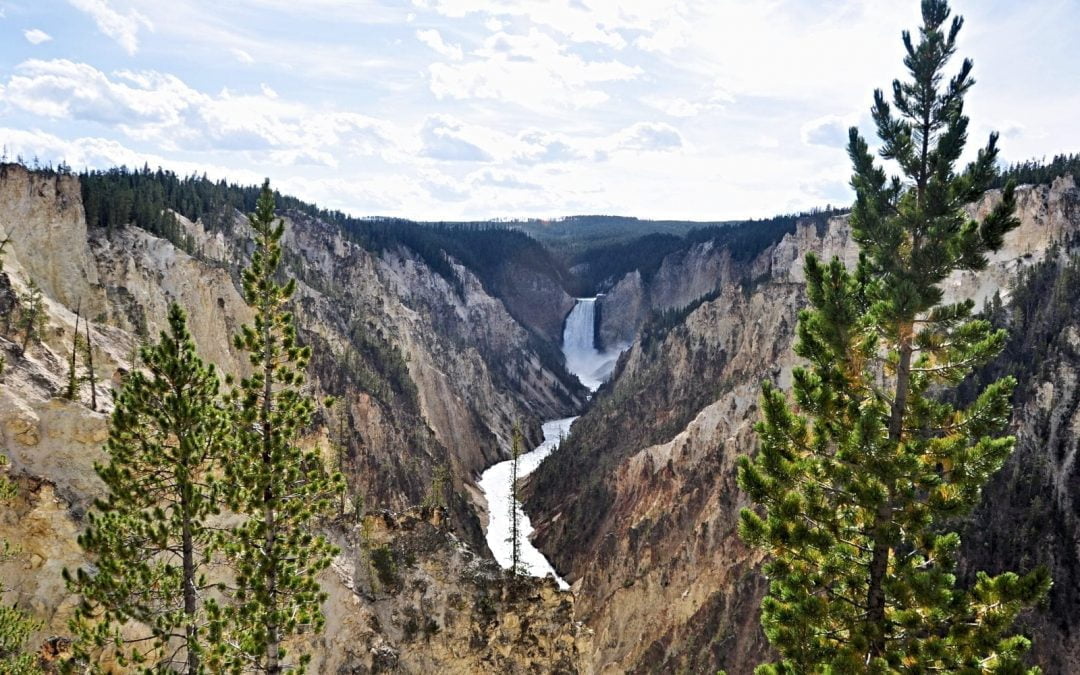Yellowstone National Park was ablaze in the summer of 1988.
From June to November, numerous fires consumed over 1.2 million acres across the area, leaving residents and visitors with the horrifying illusion that the park had been destroyed.
Scorched trunks from tall lodgepole pines jettisoned skyward, charred black by the extreme heat. The lingering smoke wafted over the park, leaving many to feel the grand majesty of Yellowstone would forever be lost to the inferno.
How could new life come from such devastating fires and intense heat?
Well, as a matter of fact, heat is exactly what the forest needed to rebirth herself. In a process called “serotiny,” an ecological system’s metamorphosis takes place when triggered by an environmental catalyst.
In Yellowstone, thousands of lodgepoles held pine cones in their branches as fire swept through the park. The intense heat melted the sticky resin that held the cones closed, allowing them to release their seeds to the ground.
As onlookers mourned at the dark landscapes over the park, something absolutely miraculous was unfolding beneath the smoldering ground: Serotiny was beginning.
The lodgepole pine cone seeds nestled themselves into the soil, preparing for their long journey to penetrate the earth and reveal new life.
Last week, I had the privilege of attending a Jesus Worldview Initiative experience near Yellowstone National Park hosted by Nurturing Faith.
For several days, our small group of eight walked trails, gawked at wildlife, marveled at nature’s beauty, ate delicious food and discussed the importance of Jesus to our faith and practice.
Driving through the park one day, I noticed several dead trees poking through a bunch of smaller trees.
When I inquired about the scene, our guide, Bruce Gourley, told me about the devastating fires that produced new growth.
The small lodgepole pines were products of the seeds released during the intense heat of the 1988 Yellowstone fires.
What some thought to be the destruction of the park turned out to be ecological care by the forest itself. It was clearing out the underbrush in order to plant new life.
Several questions came to mind as I reflected on the surprising results of these fires:
- How often do people of faith succumb to the heat of life’s flames?
- How often do we concentrate so much on the devastation of loss that we fail to see the potential for new opportunity?
- How many opportunities have we lost because we spent so much time longing for the past?
When the prophet Malachi spoke of the coming messenger of God, he used the metaphor of a refiner’s fire (Malachi 3:2). In nature, fire is both dangerous but necessary.
It’s dangerous when humans recklessly use it without purpose. However, when nature uses fire, it clears out the old preparing for new life.
Nature’s fire opens the door for new life and new possibilities. Once the soil is ready and the seeds planted, a new forest begins the long process of regeneration.
Similarly, we must never underestimate the importance of the fire as it clears out the old to produce something wonderful.
As Malachi points out, God’s messenger was going to be like the refiner’s fire, clearing out the old and transcending reality to generate something new.
When we think of Jesus, John the Baptist prophesized that God’s Messiah would baptize with the Holy Spirit and fire (Matthew 3:11).
Jesus came to the world to create something new. In confronting the status quo, he challenged the notions of exclusivity, power and inequality.
Burning down barriers to God’s love, Jesus planted the gospel into the hearts of his disciples, watering it with mercy and fertilizing it with grace.
However, the only way for this to become a reality was the tragedy on the tree. Jesus’ death on the cross cleared the way for the miracle of new life.
As Paul reflected upon this idea, he wrote, “Therefore, we have been buried with him by baptism into death, so that, just as Christ was raised from the dead by the glory of the Father, so we too might walk in newness of life” (Romans 6:4).
The time for a new movement is upon us. We must no longer remain silent when faced with people seeking to use religion as a tool for division and exclusivity.
We must, figuratively speaking, burn down barriers that prevent new life from emerging.
The church is on the cusp of something very exciting as the Holy Spirit moves in new and bold ways.
However, as in the forest, we must allow the divine fires to consume our old ways in order for God’s new seeds to be planted.
As I drove through Yellowstone last week, I marveled at the new growth emerging from the forest floor. One day, I hope to marvel at the new life bursting forth in God’s church.


